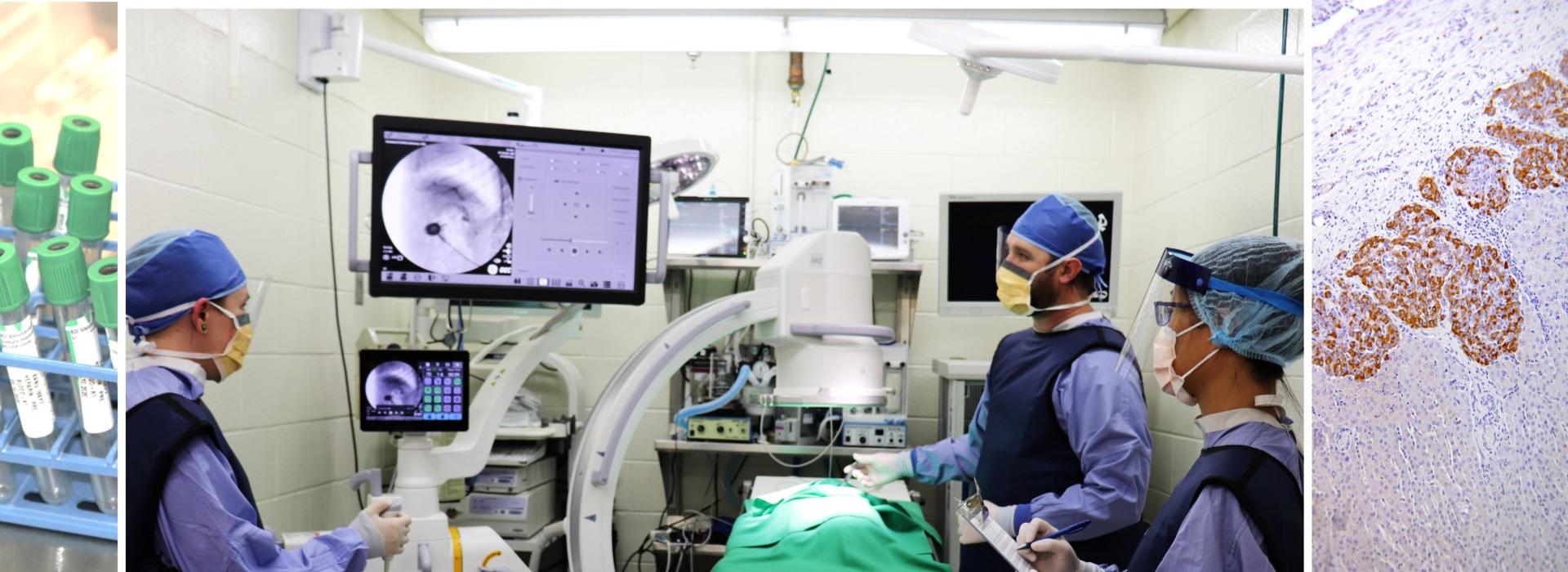
Preclinical Research Center
PCRC leads the wayin outstanding biomedical research benefitting Minnesotans and beyond using world-class modeling that is inspired by our innovation, creativity, and deep commitment to the psychological well-being, health, and biology of animals used in research
Mission
The Preclinical Research Center, directed by Dr. Melanie Graham, uses an integrated interdisciplinary approach to address issues in human and animal health and well-being. The Center focuses on:
1) Developing methods to understand immunometabolism towards innovative therapies for diseases with high public health impact, e.g. diabetes, obesity, and infectious disease, and
2) Identifying the general reasons why animal models fail or succeed in predicting human outcomes and providing solutions that further the best animal experience and improve the accuracy of these models towards replacement or reduction in animals used in biomedical research.

MELANIE GRAHAM, MPH, PHD
Robert and Katherine Goodale Chair in Minimally Invasive Surgery
Professor of Surgery, Medical School, Department of Surgery
Director, Preclinical Research Center
Professor of Veterinary Population Medicine, College of Veterinary Medicine
Dr. Graham is a primatologist specialized in using behavioral management to improve scientific rigor and welfare in NHP studies to make them more clinical-trial-like and accurate in prediction to accelerate novel therapies in immunology, transplant, infectious disease, and neurological disorders changing or saving the lives of our patients in Minnesota and beyond. Having an animal-centric philosophy where we view animals as a ‘whole’ with intrinsic value in a scientist-led unit positions PCRC to perform research that goes beyond basic regulatory requirements to ensure our animals thrive while being also fully responsive to the science.
“Medicine in all of its forms has played a key role in increasing well-being and healthy life expectancy in animals and humans, to the extent that the right to health is a key component of modern society,” Graham said. “Being very aware that these advances in medicine still rely on research using animals where there are no other alternatives, and I am interested in making an impact on the lives of animals being used.”
Making A Difference
Multidisciplinary biomedical research at PCRC is primarily aimed at development of novel immunotherapies, regenerative medicine, and vaccines. Major research programs target diabetes, obesity, and cell and organ transplantation. The similarity of nonhuman primates to humans in genetic makeup, behavior, and organ system function provides irreplaceable opportunities to understand, prevent, and treat human disease.
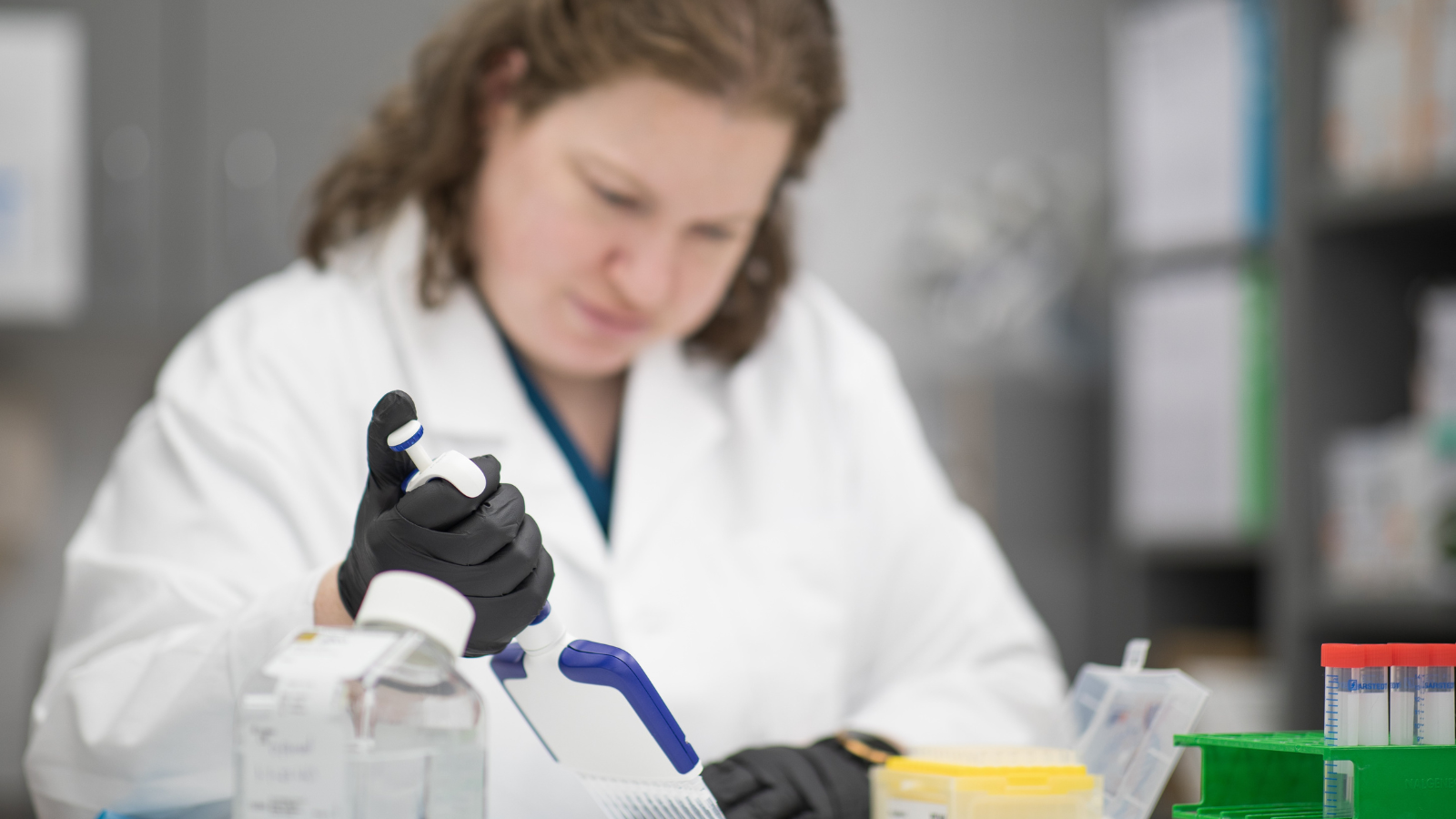
The Center is well-known for successfully modeling complex therapies in primate models of disease, pioneering the next generation of therapies in cell transplant. This is supported by their distinctive program in behavioral management which supports engagement of the animals with their care to balance their needs and wants with the scientific aims.
Caring For Our Animals
For Melanie Graham, MPH, Ph.D., making scientific progress while also respecting animals’ inherent value as living beings isn’t just possible—it’s essential.
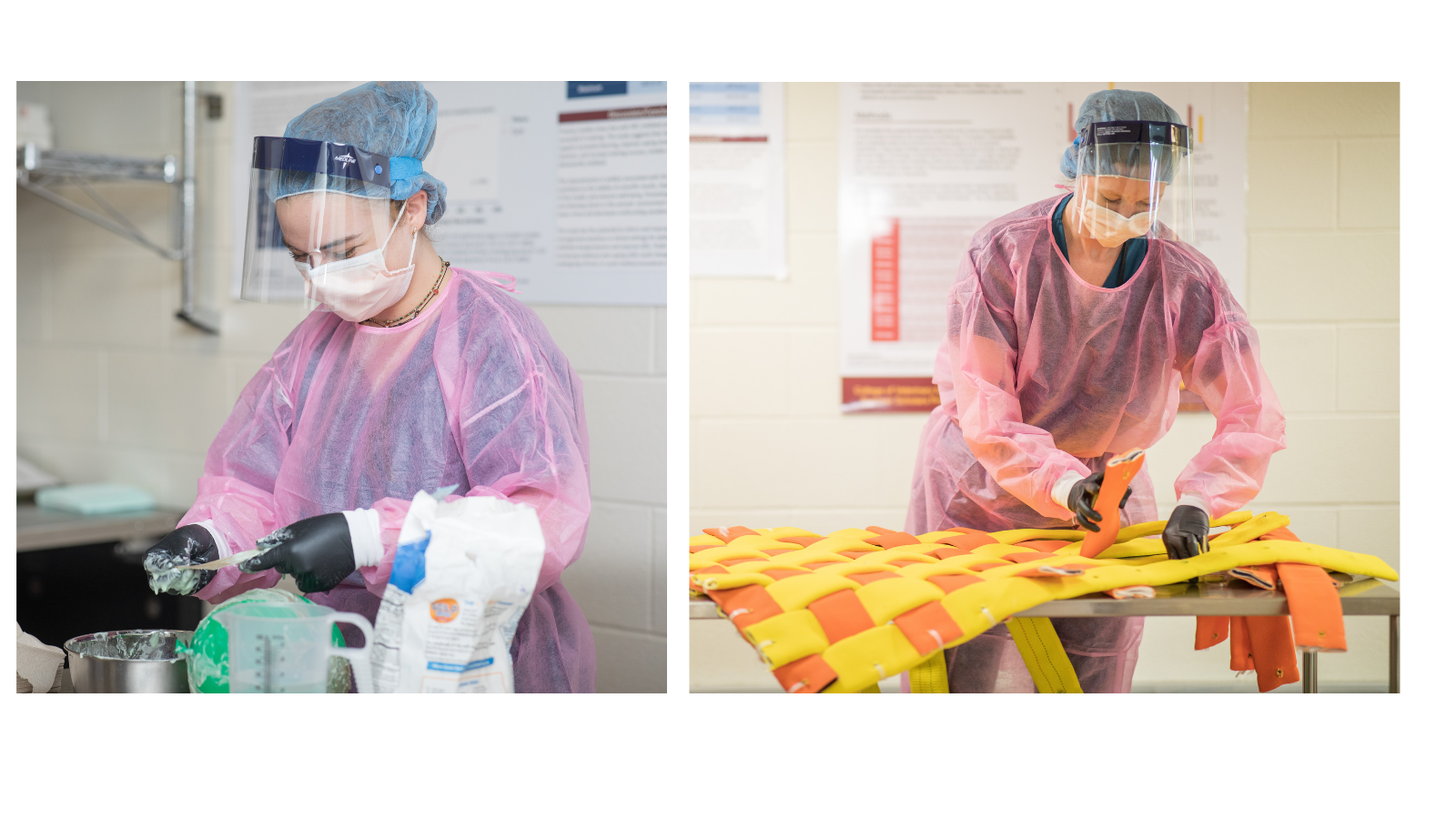
“What interests me is care and compassion for humans and animals,” said Graham, Professor of Surgery in the University of Minnesota’s Medical School. “I believe there is a balance that is capable of promoting animal welfare and making biomedical progress in ways that will change lives.” Animals play an essential role in the discovery of accessible, safe, and effective vaccines, treatments, and cures for devastating human and animal diseases. We design and perform research with alternatives whenever possible and use animals for only the most essential research endeavors providing compassionate care.
Guiding Principles for Ethical Research: The 3Rs
Replacement
Two tenets of the 3Rs, reduction and replacement, center on the idea of finding alternatives to animal research when possible. Valid alternatives are gradually increasing and are changing how we train the next generation of scientists.
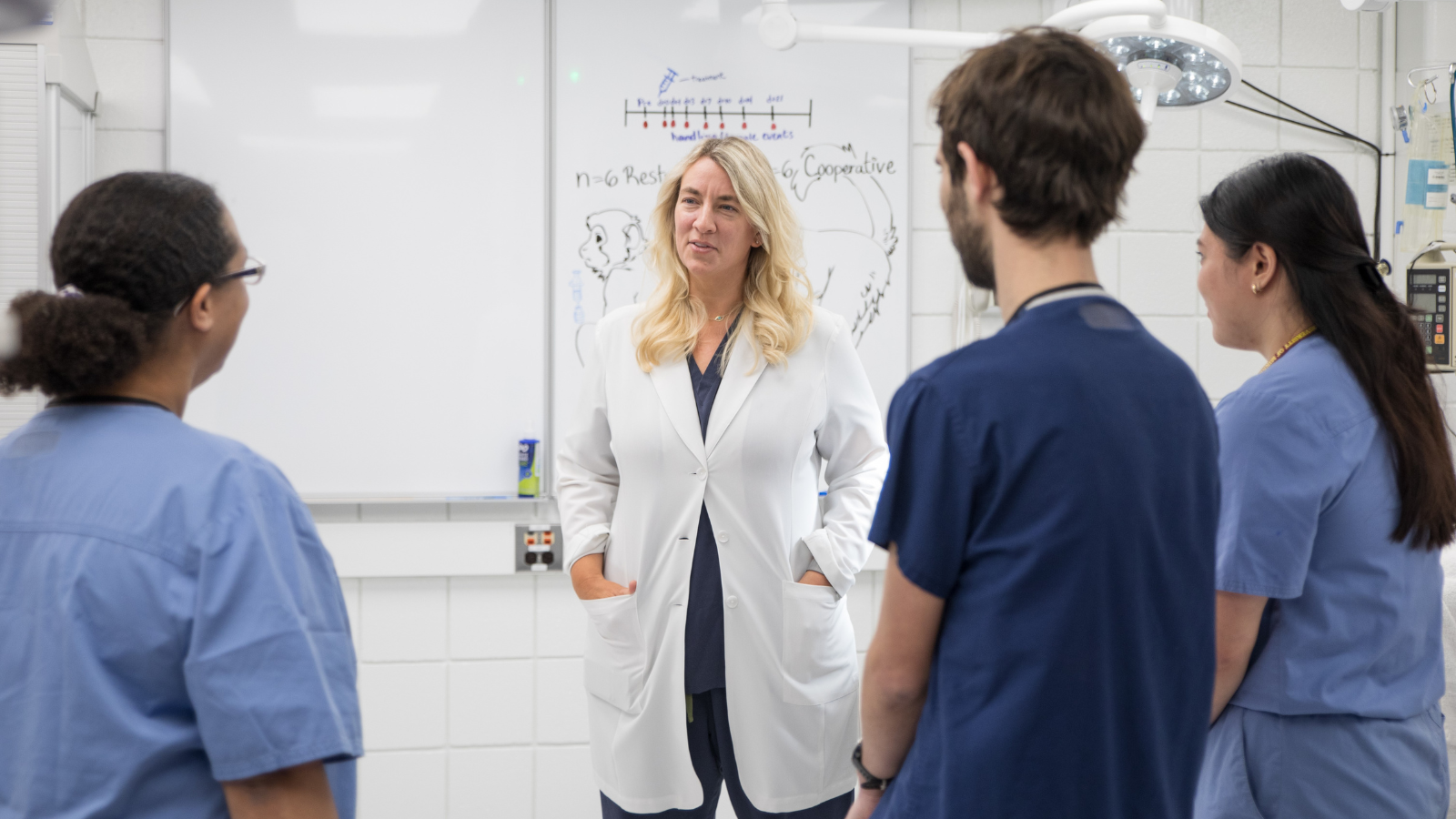
Reduction
Computer modeling or cell lines can be useful for suggesting the immediate outcome of a treatment, but in vivo studies may be required to understand how it affects the body as a living system. For example, will a diabetes treatment targeting the pancreas cause problems for the heart? Determining this risk before clinical trials begin is crucial for human safety.
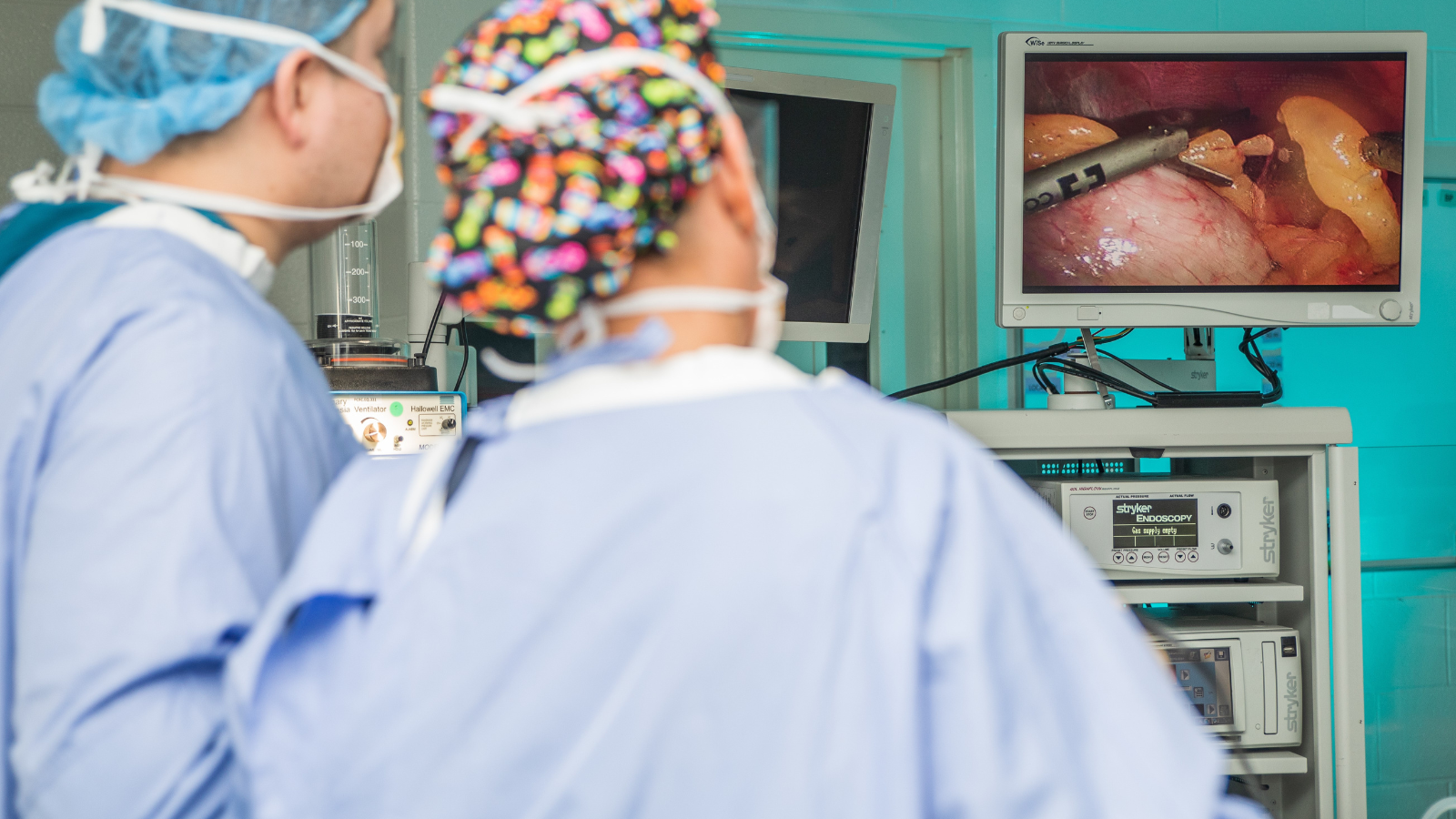
Refinement
We are committed to exploring ways we can reduce our reliance on animal models and refine models we use. We advance animal welfare by designing cutting edge in vivo technologies and by improving understanding of the impact of welfare on scientific outcomes.
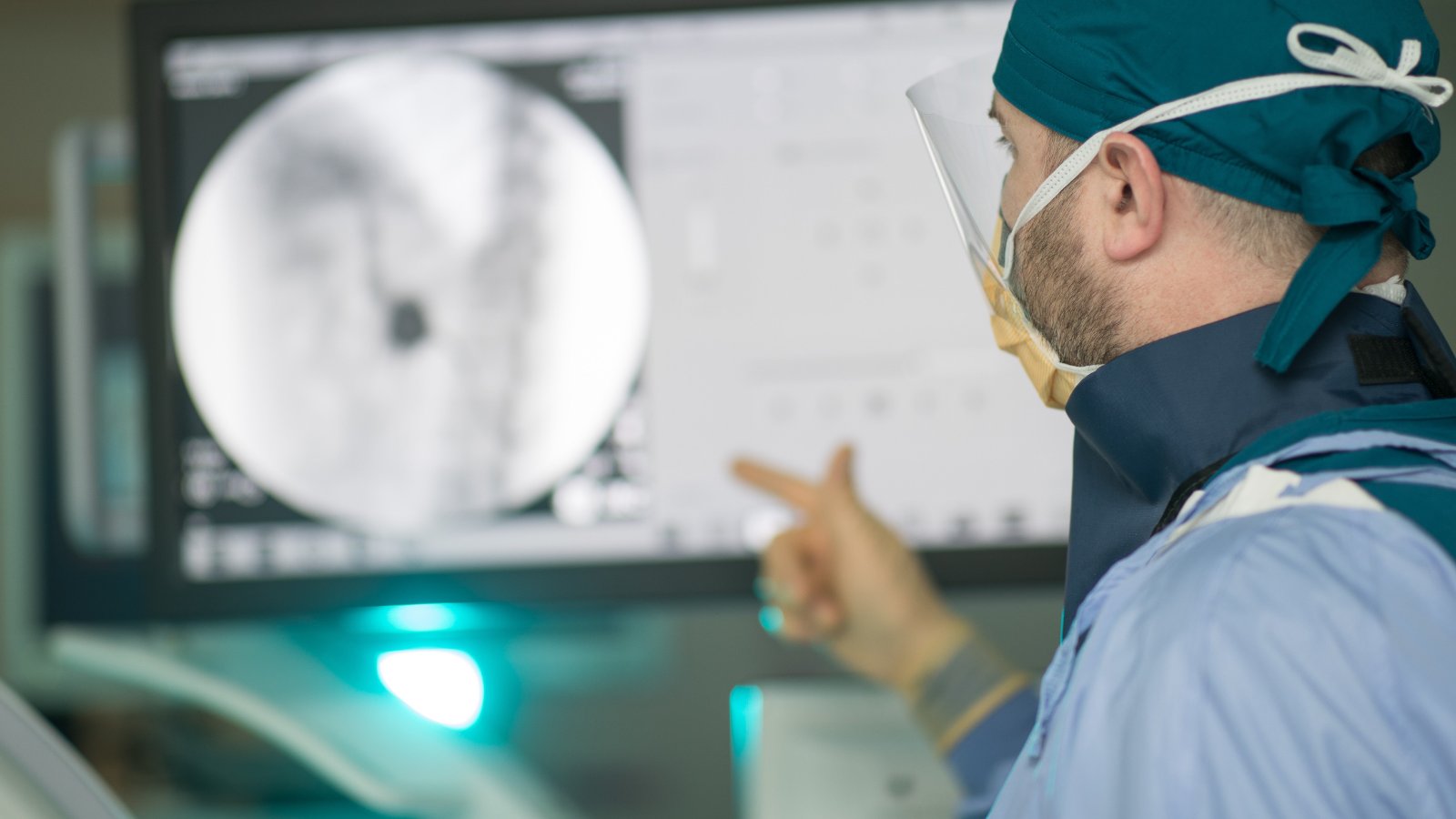
Publications
Palmer, S.*, Oppler, S. H.*, Graham, M. L. (2022). Behavioral Management as a Coping Strategy for Managing Stressors in Primates: The Influence of Temperament and Species. Biology, 11(3). PMID: 35336797 PMCID: PMC8945664 doi: 10.3390/biology11030423
Hocum Stone, L., Oppler, S.H.*, Nugent, J.L., Gresch, S., Hering, B.J., Murtaugh, M.P., Hegstad-Davies, R.L., Ramachandran, S., Graham, M.L. (2021) Serum cytokine profiles in healthy nonhuman primates are blunted by sedation and demonstrate sexual dimorphism as detected by a validated multiplex immunoassay. Scientific Reports, 11(1), 2340.
Singh, A.*, Ramachandran, S.*, Graham, M.L.*, Daneshmandi, S.*, Heller, D., Suarez-Pinzon, W.L., Balamurugan, A.N., Ansite, J.D., Wilhelm, J.J., Yang, A., Zhang, Y., Palani, N.P., Abrahante, J.E., Burlak, C., Miller, S.D., Luo, X., & Hering, B.J. (2019). Long-Term Tolerance of Islet Allografts in Nonhuman Primates Induced by Apoptotic Donor Leukocytes. Nature Communications,10(1):3495. *Co-first authors.
Syedian, Z.H., Graham, M.L., Dunn, T.B., O’Brien, T.D., Johnson, S.L., & Tranquillo, R.T. (2017). A completely biological “off-the-shelf” arteriovenous graft that recellularizes in baboons.” . Sci Transl Med, 9, eaan4209.
Graham, M.L., & Prescott, M. (2015). The multifactorial role of the 3Rs in shifting the harm-benefit analysis in animal models of disease. Eur J Pharmacol, 759,19-29.
Graham, M.L., Rieke, E.F., Mutch, L.A., Zolondek, E.K., Faig, A.W., DuFour, T.A., Munson, J.W., Kittredge, J.A., & Schuurman, H-J. (2012). Successful implementation of cooperative handling eliminates the need for restraint in a complex nonhuman primate disease model. J Med Primatol, 41, 89-106.
Graham, M.L., Janecek, J.L., Kittredge, J.A., Hering, B.J., & Schuurman, H-J. (2011). The streptozotocin induced diabetic nude mouse model: differences between source animals. Comp Med, 61, 1-5.
Graham, M.L., Rieke, E.F., Dunning, M., Mutch, L.A., Craig, A.M., Zolondek, E.K., Hering, B.J., Schuurman, H-J., & Bianco, R.M. (2009). A novel alternative placement site and technique for totally implantable vascular access ports in nonhuman primates. J Med Primatol, 38, 204-212.
Cooperating with the Animals

Patients with chronic disease live with the burden of their disease, but also the everyday challenges of medical intervention. In studying these diseases, researchers face similar demands with their animals, with the added requirements that treatments and tests for efficacy and safety testing impose. Dr. Graham’s lab was the first to clearly demonstrate that animals, especially primates, can be trained to routinely cooperate with caregivers in highly complex examinations and therapies, which was considered remarkable at a time when restraint was the norm in working with animals.
“I believe that we can positively impact the way our animals experience the research environment, and in doing this enhance the science to accelerate new cures, and create a ripple effect beyond the U of M.”
Capabilities
PCRC connects the most valuable aspects of our research organization to advance cell-, gene- and immuno- therapies targeting metabolic, autoimmune, infectious, and inherited diseases using highly refined preclinical models.
We will help you design the best and most accurate research model for your study using our deep expertise ranging from non-animal alternatives, screening studies in rodents, to translational nonhuman primate models.
Studies have access to our institution’s singular resources, including cutting-edge imaging capabilities, world-class surgical services and a wide range of core laboratories including:
Primate Immunobiology Resource, The University of Minnesota Genomics Center (UMGC), the University Imaging Center (UIC), College of Veterinary Medicine (CVM) clinical pathology, the Comparative Pathology Shared Resource (CPSR), the Center for Immunology, the Center for Mass Spectrometry and Proteomics, the Flow Cytometry Facility, the Digital Imaging Center, and the Minnesota Supercomputing Institute (MSI).
UMN experts in their fields will serve as the principal investigators or study directors on your study. These experts will provide guidance throughout the study to help you interpret study data, the broad research implications, and support transition into clinical trials.
A Team Effort, a Caring Environment
All of this attention to the animals’ experience, Dr. Graham said, is important to advancing the state of animal research and keeping ethics top-of-mind, so that the University can act as a leader in ethical animal research.
“The reality of making a difference or creating an excellent experience is usually an accumulation of small moments and interactions, going in the right direction because they are performed by people who are committed to this mission,” Dr. Graham said. “Our animals are not ‘instruments’; there is a power in everyday mindfulness, kindness, and respect for their intrinsic value as animals.”
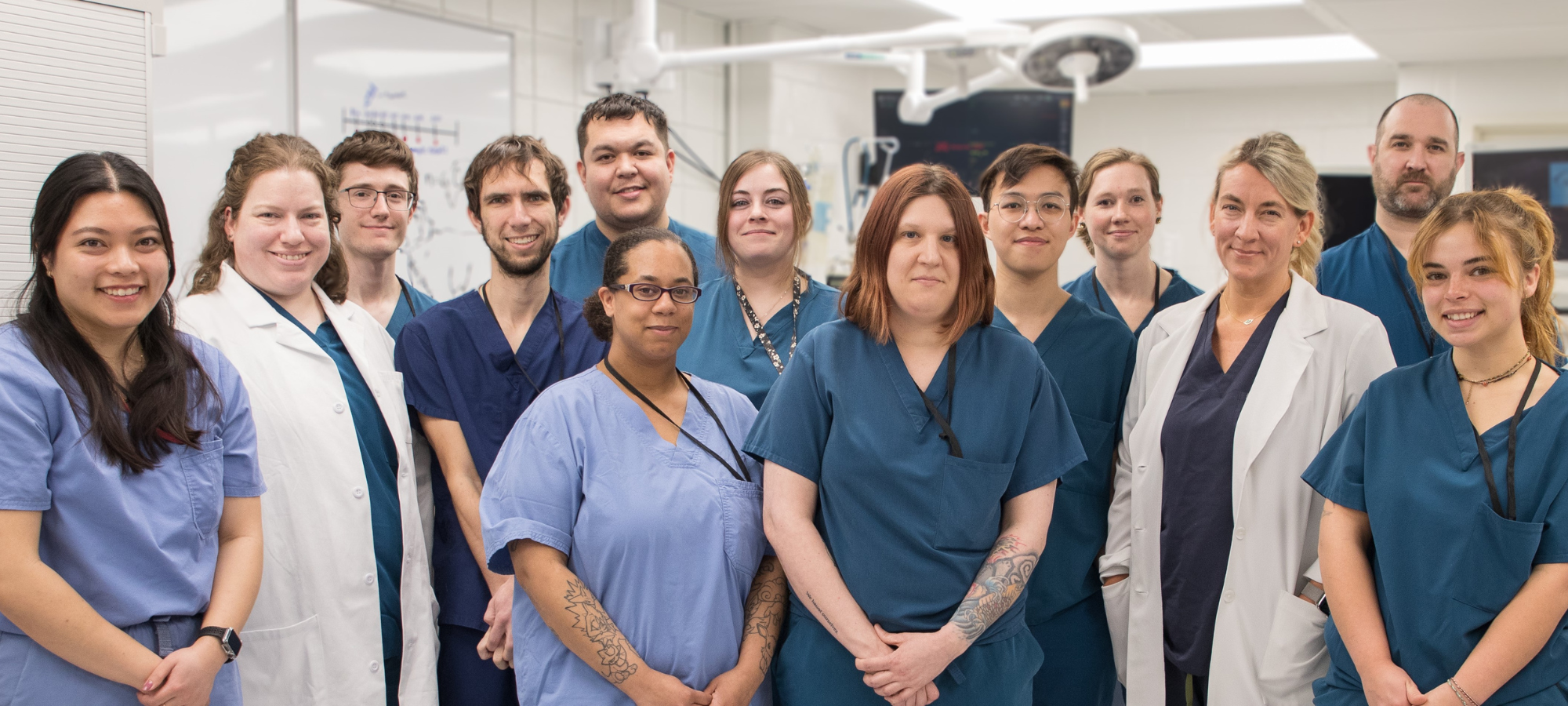
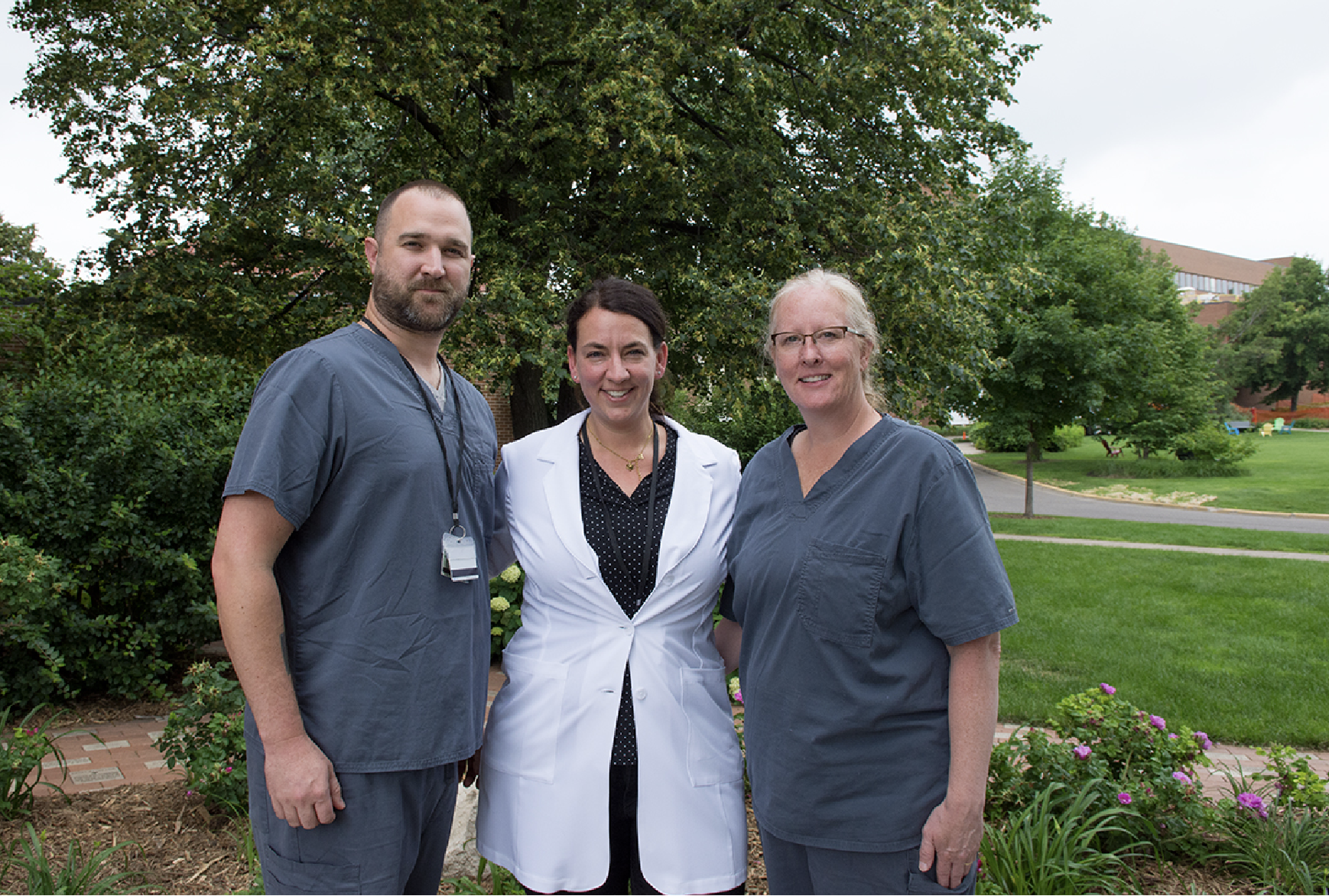
From left: Lucas Mutch, Scientific Program Director; Melanie Graham, MPH, Ph.D., Professor of Surgery; and Jody Janecek, Scientific Program Director. Photo: Office of the Vice President for Research
Notable Research Links
Rochester's Vyriad developing oral COVID-19 vaccine
UMN announces breakthrough startup to replace heart valves
Cell injections could train the body to accept a transplanted organ
Keeping Ethics at the Center of Animal Research
University of Minnesota Achieves Transplant in Monkeys Without Long-term Immune-fighting Drug
PCRC is part of the University of Minnesota’s Academic Health Center Medical School. Our position within a world-class research university provides you access to unlimited resources, equipment, and internationally recognized experts. In our Center we have state-of-the-art imaging, surgical technology, and behavioral programs.